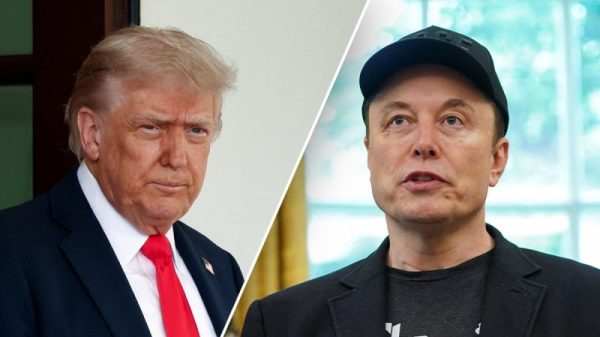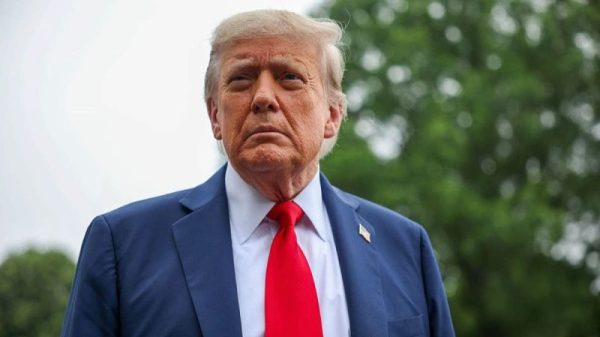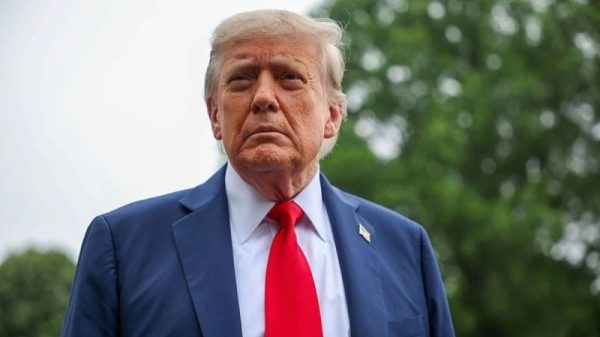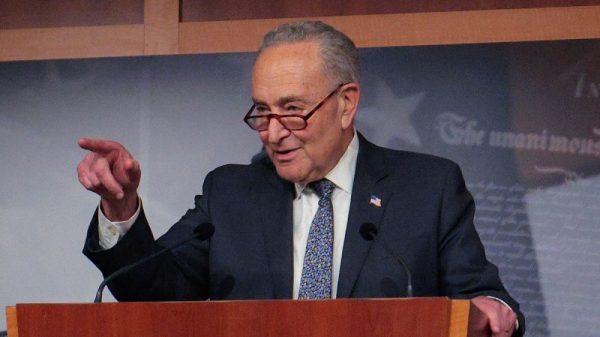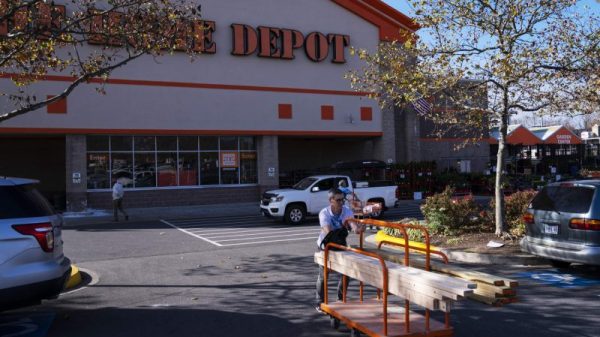One presumes that the intention of the Republican Party’s establishing a requirement that candidates demonstrate 40,000 individual donors to join sanctioned presidential debates was to winnow participation to those with some grass-roots support.
The actual effect, however, has been to spur a flurry of gimmicks in which candidates and their allies attempt to trigger contributions by offering something in return: sports tickets, tuition or even money back.
As a service to Washington Post readers, we have selected six efforts from Republican primary campaigns to assess the return on investment for each. Allow this to inform where and how you decide to offer your financial support — assuming, that is, that you for some reason make political contributions primarily as a mechanism for improving your personal finances.
We’ll begin with the best deal available.
Candidate: North Dakota Gov. Doug Burgum
Burgum’s long-shot campaign — a term that is used so often that it in its common understanding wildly understates the governor’s position — has initiated an effort to spur individual donations by sending $20 gift cards to the first 50,000 people who donate $1 to his campaign.
The governor is a wealthy guy, so taking a $950,000 bath on this is not going to leave him broke. But it may prove to be a bad investment in another way, given that his team is telling reporters that they hope it will gin up 20,000 new contributions. Since there is a nonzero chance that the campaign team is a bit iffy on math, I’ll note that 20,000 is less than 40,000.
But for you, the political investor, this is a sure thing. A guaranteed 1,900 percent return on investment is by far the best deal on the table here.
Candidate: Miami Mayor Francis Suarez
On Twitter, Suarez announced a promotion in which anyone who “Venmo’s” him $1 will be entered into a raffle to win tickets to see soccer star Lionel Messi’s debut with Miami’s Major League Soccer team. The Miami Herald reports that those two tickets have a value of $2,000.
There are a few things that set this apart from Burgum’s pitch. The first is that the return isn’t guaranteed. If we assume that this spurs 10,000 new donations, the odds of being picked as the winner are 1 in 10,000, or 0.01 percent. Those aren’t Powerball-bad odds, but they’re still pretty bad.
Then there’s the actual prize. Messi is a huge international star and his MLS debut is enormous for the league and its fans. But soccer isn’t that popular in the United States, with only about a quarter of adults telling The Washington Post and our partners at the University of Maryland that they were fans of the sport in a poll conducted last year. Among Republicans, Suarez’s presumed target audience, the percentage drops to 1 in 5.
There’s a final complication. If you don’t live in South Florida, you’re going to have to spend more than $1 on getting to the game. That’s non-trivial.
So low odds of winning a prize along with relatively limited appeal. But, on the other hand: only $1. And if you win, you can always increase your return on investment by selling them to a south-Florida soccer fan.
Candidate: Suarez super PAC
There is also an outside political action committee backing Suarez that ended up beating him to the punch. It used a weird video with an AI-generated Suarez to announce that it was entering donors to his campaign into a raffle to win $15,000 in college tuition.
FREE COLLEGE GIVEAWAY
Yes, seriously. Give $1 now to support @FrancisSuarez for President for your chance to win a FREE YEAR OF COLLEGE!
TAP THE LINK BELOW TO ENTER NOW!#Suarez2024 #FreeCollegeGiveaway #FrancisFreeCollege #President pic.twitter.com/7JwyIydUep
— SOS America (@sosamericapac) July 13, 2023
If you read the fine print, you see that this is, in fact, centered on paying for school. The prize will “award one year of tuition payments, up to a total of $15,000, for an institution of higher learning (college, university, community college, or vocational school) of the winner’s choice.” “Up to” is doing a lot of work there, obviously.
This giveaway notes that you don’t need to make a contribution to enter, a standard bit of verbiage for similar sweepstakes. (There’s a separate page to enter without donating.) But let’s assume you give the dollar. What are your odds?
Well, it seems likely that this will inspire fewer donors, given the stipulation that the award applies to tuition. If 5,000 people enter, your odds are 0.02 percent, double the odds of those soccer tickets but still not much different from, say, Suarez’s odds of winning the nomination. What’s more, you presumably can’t convert this into cash as easily as you could two soccer tickets.
Candidate: Vivek Ramaswamy
Business executive Vivek Ramaswamy claims he has already met the 40,000 donor threshold, but he’s offering a fundraising gimmick anyway: Get other people to donate and you can receive 10 percent of what they give.
It is at this point that I’ll abstractly note the various legal questions surrounding all of these different ploys. (The Post covered it in more detail a few days ago.) The internet/attention era has finally reached the shores of campaign fundraising in earnest, meaning that once clear-cut rules are now being stretched and tugged in various directions.
Each of the first four gimmicks on this page should be assumed to carry an asterisk referring to the possibility that the whole promotion might be ruled invalid. But that asterisk can carry an asterisk of its own: The Federal Election Commission has not demonstrated much eagerness to crack down on political campaigns in recent years.
Anyway, the Ramaswamy offer is a good one if you feel like participating in Uber-for-fundraising. While you don’t have to put any money in, but you do have to put in work, and working has always been little more than a safe-bet raffle with mediocre rewards.
Candidate: Donald Trump
Candidate: Florida Gov. Ron DeSantis
The two front-runners for the Republican nomination — or, really, the one front-runner and the guy who appears to have a really robust lock on coming in second — are offering a more traditional value proposition to donors: Give me money and maybe I will become president!
This worked out well for Trump donors in 2016, particularly the wealthier ones. In December 2017, he signed into law a sweeping set of tax cuts that unquestionably ended up being an effective return on investment for rich donors to his campaign. Other donors probably realized other desired outcomes from his administration, including ones not centered on making money.
This is how fundraising usually works. But it does carry a risk. At the moment, the betting market at PredictIt figures that Trump has a 1 in 3 chance of being president (too low) while DeSantis has a 1 in 8 chance (probably also too low).
It also figures that California Gov. Gavin Newsom (D) has about the same odds as DeSantis, despite not being a candidate, and that Newsom’s odds of winning are three times higher than those of Vice President Harris (D), who is unusually likely to be the sitting president by the time the election rolls around. So, you know, take these odds with a grain of salt.
With all of this in mind, we can summarize the Republican candidates’ fundraising spurs as follows.
If you live in Miami and love Argentine soccer stars, give cash to Suarez. If you just want to get the biggest return possible without incurring any risk, Burgum is your pick. If you are looking for a Republican president who will enact financial policies that benefit you and those in your income cohort, give more than $1 to Trump.
Hope that helps.


